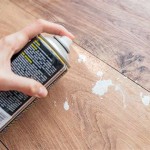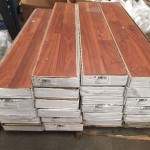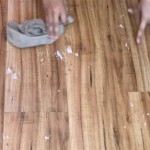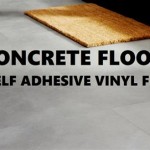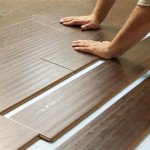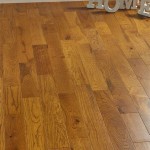Is Cork Flooring Suitable for Bathrooms?
Cork flooring is a unique and eco-friendly option for your home, but is it suitable for bathrooms? Here's what you need to know about the pros and cons of using cork flooring in this moisture-prone area.
Pros of Cork Flooring in Bathrooms
- Water resistance: While cork is not waterproof, it has natural water-resistant properties due to its cellular structure. It can withstand occasional splashes and spills.
- Warmth and comfort: Cork is a natural insulator, making it warm and comfortable underfoot. It can create a cozy and inviting atmosphere in your bathroom.
- Noise reduction: Cork's porous nature helps absorb sound, making it a quieter flooring option. This can be beneficial in bathrooms where noise can easily travel to other areas of the home.
- Antimicrobial properties: Cork has natural antimicrobial properties that can help prevent the growth of mold and mildew.
- Durability: Cork is a durable material that can withstand daily wear and tear. It is resistant to scratches and dents, making it a good choice for high-traffic areas like bathrooms.
Cons of Cork Flooring in Bathrooms
- Moisture vulnerability: While cork is water-resistant, it can be damaged if exposed to excessive moisture for prolonged periods. It is not suitable for areas where water pools or stands.
- Sealing required: Cork flooring requires sealing with a water-resistant finish to protect it from moisture. This seal must be reapplied periodically to maintain its effectiveness.
- Darkening with water: Cork flooring can darken when exposed to water. While this is usually temporary, it can be a concern in areas where water is likely to spill.
- Limited design options: Cork flooring comes in a limited range of colors and patterns compared to other flooring materials, so it may not suit all bathroom designs.
Suitability
Cork flooring can be a suitable option for bathrooms that are well-ventilated and not prone to excessive moisture. It is ideal for areas like guest bathrooms or powder rooms where water exposure is minimal. However, it is not recommended for areas like showers, bathtubs, or areas where water can accumulate.
Maintenance
To ensure the longevity of cork flooring in bathrooms, regular maintenance is essential. Wipe up spills immediately and mop the floor with a damp cloth. Avoid using harsh chemicals or abrasive cleaners. Reapply a water-resistant sealant every few years to protect it from moisture.
Conclusion
Whether cork flooring is suitable for your bathroom depends on your specific bathroom conditions and preferences. If you have a well-ventilated bathroom with minimal water exposure, cork flooring can be a great choice. However, if your bathroom is prone to moisture or potential water damage, it is best to consider other flooring options.

Your Guide To Using Cork Floors In A Bathroom Portuguese Treasures

Best Bathroom Flooring Cork Tile For Rest Of The House Icork Floor

Best Bathroom Flooring Cork Tile For Rest Of The House Icork Floor

Will Cork Float For Your Bathroom Floor

Best Bathroom Flooring Cork Tile For Rest Of The House Icork Floor

Bathroom Flooring Cork Floor Cancork

Bathroom Flooring Cork Floor Cancork

Bathroom Flooring Cork Floor Cancork

Classic Cork Tile The Habitus Collection

Best Bathroom Flooring Cork Tile For Rest Of The House Icork Floor
See Also
